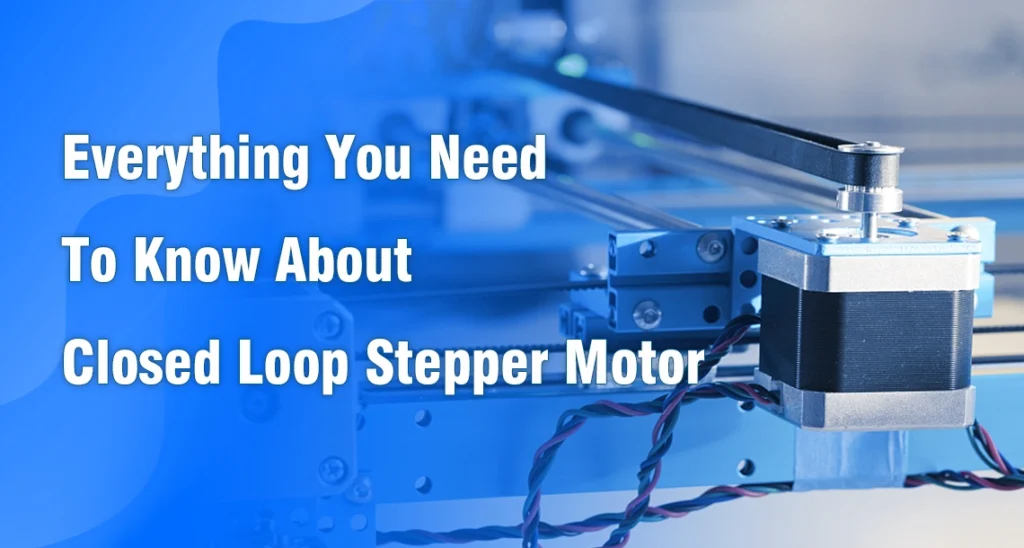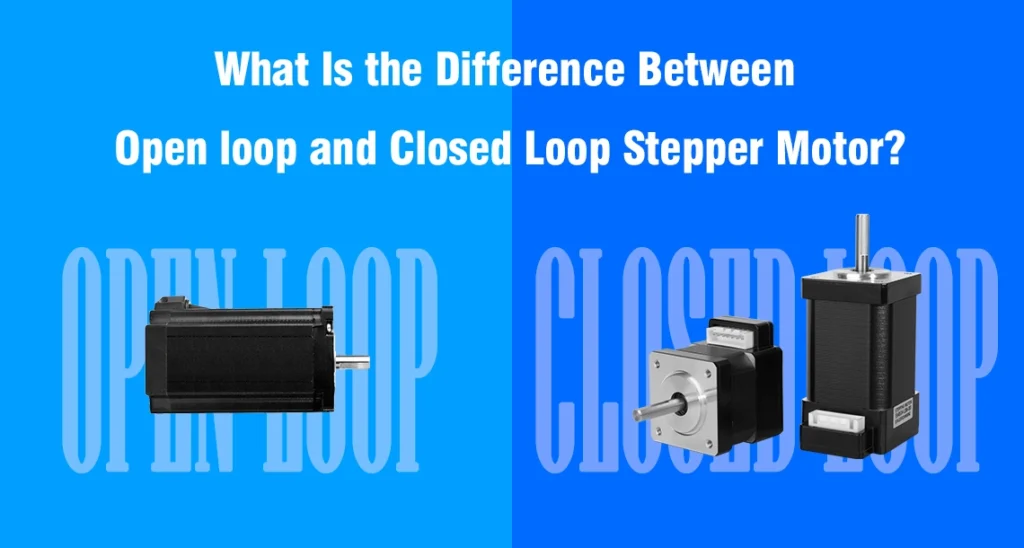Textile manufacturing has always been a labor-intensive industry, characterized by the intricate processes involved in turning raw materials into finished textiles. One of the key components in this industry is the machinery used for cutting, sewing, embroidering, and knitting fabrics. Traditionally, these machines have relied on various types of motors for their operation. However, recent advancements in technology have introduced a game-changer: closed loop stepper motors.
Traditional Stepper Motors vs. Closed Loop Stepper Motors
Stepper motors are a type of electric motor that divides a full rotation into several equal steps. These motors are widely used in applications requiring precise control over motion, making them ideal for the intricate processes involved in textile manufacturing.
Traditional stepper motors have long been utilized in textile machinery for their ability to precisely control movement. However, they suffer from inherent limitations, such as lack of feedback and susceptibility to errors. Closed-loop stepper motors, on the other hand, address these shortcomings by incorporating a feedback mechanism that continuously monitors and adjusts performance.
The Role of Stepper Motors in Textile Manufacturing
In textile manufacturing, stepper motors play a crucial role in driving various types of machinery used for cutting, sewing, embroidering, and knitting fabrics. These motors provide the precise control needed to ensure accurate and consistent results throughout the production process.
Challenges Faced in Traditional Textile Manufacturing
- Inefficiency
Traditional stepper motors may operate at a constant power level regardless of the workload, leading to energy inefficiencies, especially during idle or low-load periods. This constant power consumption contributes to higher production times and higher costs.
- Lack of Precision
Traditional textile machinery is not precise enough, resulting in potential frame drops or misalignments. This inconsistency in production leads to finished products that fail to meet quality standards, disappointing both manufacturers and customers alike.
- Material Wastage
Material wastage is prevalent in traditional textile manufacturing processes due to several reasons. One significant factor is the limited precision of traditional stepper motors, which often results in inaccuracies during the positioning of textile materials. These inaccuracies can lead to errors in critical processes such as cutting, stitching, or printing. Consequently, poorly aligned pieces may need to be discarded, leading to significant material wastage. This inefficiency further contributes to increased costs and hampers overall productivity in the textile manufacturing industry.
How Closed Loop Stepper Motors Operate?
Closed loop stepper motors integrate feedback systems to constantly monitor their position, making real-time adjustments for precise positioning. Unlike open-loop counterparts, they offer enhanced accuracy and reliability in motion control.
Applications of Closed Loop Stepper Motors in Textile Manufacturing
Closed loop stepper motors find a wide range of applications in textile manufacturing, including:
Fabric Cutting Machines
Sewing Machines
Embroidery Machines
Knitting Machines
Benefits of Using Closed Loop Stepper Motors in Textile Manufacturing
- Enhanced Precision
Closed loop stepper motors offer unparalleled precision, ensuring consistent and accurate results in textile manufacturing processes.
- Improved Efficiency
By reducing the need for manual adjustments and minimizing errors, closed loop stepper motors contribute to increased efficiency and productivity in textile manufacturing.
- Reduction in Material Wastage
The precise control provided by closed loop stepper motors helps minimize material wastage, leading to cost savings and environmental benefits.
- Cost Savings
While the initial investment in closed loop stepper motors may be higher than traditional alternatives, the long-term cost savings are substantial. Lower maintenance requirements, reduced material wastage, and increased productivity contribute to a favorable return on investment over time.
- Environmental Impact
In addition to improving operational efficiency, closed loop stepper motors also contribute to sustainability initiatives within the textile industry. By minimizing waste and conserving resources, these motors help reduce the environmental footprint of manufacturing processes.

Future Trends
Looking ahead, the future of closed-loop stepper motors in textile manufacturing appears promising. Ongoing advancements in technology promise even greater levels of efficiency and integration with Industry 4.0 initiatives. As these trends continue to unfold, closed-loop stepper motors are poised to redefine the standards of efficiency in textile manufacturing.
Conclusion
Closed loop stepper motors represent a paradigm shift in textile manufacturing, offering unprecedented levels of precision, efficiency, and cost savings. By embracing this technology, textile manufacturers can stay competitive in an increasingly demanding market while also reducing their environmental footprint.
FAQs
Q1: Are closed loop stepper motors suitable for all types of textile manufacturing processes?
A1: Closed loop stepper motors are versatile and can be adapted to various textile manufacturing applications, including weaving, knitting, and dyeing.
Q2: Are closed loop stepper motors compatible with existing textile machinery?
A2: Yes, closed loop stepper motors can typically be integrated into existing textile machinery with minimal modifications.
Q3: How do closed loop stepper motors contribute to cost savings?
A3: By reducing material wastage, improving efficiency, and minimizing downtime, closed loop stepper motors help textile manufacturers save money in the long run.
Q4: Can closed loop stepper motors be used in other industries besides textiles?
A4: Yes, closed loop stepper motors have applications in a wide range of industries, including robotics, automotive, and aerospace.
Q5: Are closed loop stepper motors difficult to maintain?
A5: No, closed loop stepper motors require minimal maintenance compared to other types of motors, thanks to their robust design and advanced control systems.
Q6: What maintenance procedures are required for closed loop stepper motors?
A6: Regular maintenance, including cleaning, lubrication, and periodic calibration, is essential to ensure optimal performance and longevity of closed loop stepper motors.




